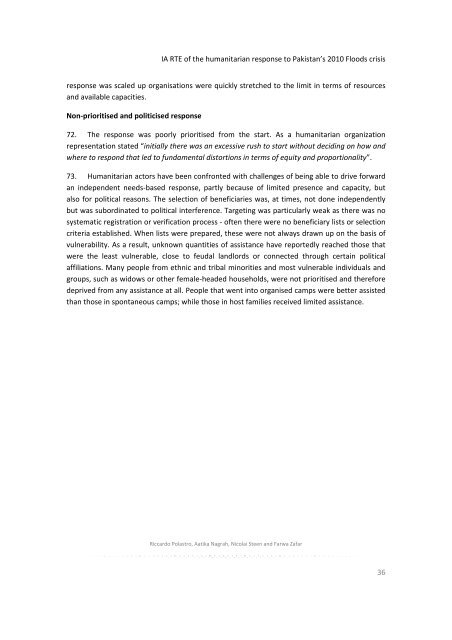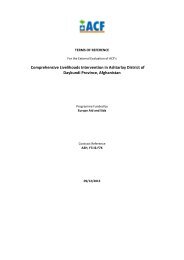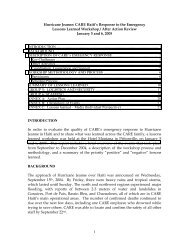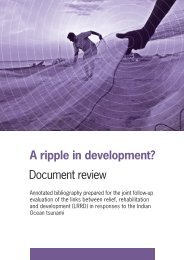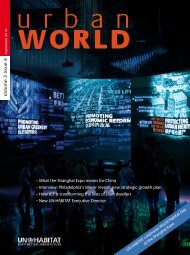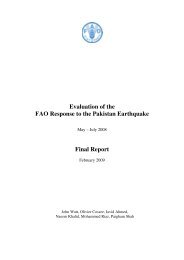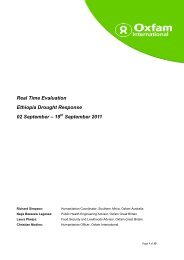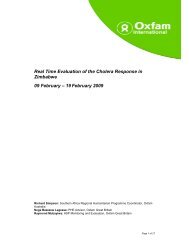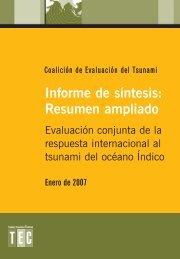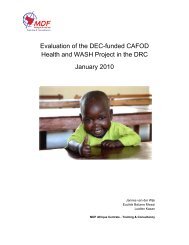Inter-Agency Real Time Evaluation of the Humanitarian ... - alnap
Inter-Agency Real Time Evaluation of the Humanitarian ... - alnap
Inter-Agency Real Time Evaluation of the Humanitarian ... - alnap
You also want an ePaper? Increase the reach of your titles
YUMPU automatically turns print PDFs into web optimized ePapers that Google loves.
IA RTE <strong>of</strong> <strong>the</strong> humanitarian response to Pakistan’s 2010 Floods crisis<br />
response was scaled up organisations were quickly stretched to <strong>the</strong> limit in terms <strong>of</strong> resources<br />
and available capacities.<br />
Non‐prioritised and politicised response<br />
72. The response was poorly prioritised from <strong>the</strong> start. As a humanitarian organization<br />
representation stated “initially <strong>the</strong>re was an excessive rush to start without deciding on how and<br />
where to respond that led to fundamental distortions in terms <strong>of</strong> equity and proportionality”.<br />
73. <strong>Humanitarian</strong> actors have been confronted with challenges <strong>of</strong> being able to drive forward<br />
an independent needs‐based response, partly because <strong>of</strong> limited presence and capacity, but<br />
also for political reasons. The selection <strong>of</strong> beneficiaries was, at times, not done independently<br />
but was subordinated to political interference. Targeting was particularly weak as <strong>the</strong>re was no<br />
systematic registration or verification process ‐ <strong>of</strong>ten <strong>the</strong>re were no beneficiary lists or selection<br />
criteria established. When lists were prepared, <strong>the</strong>se were not always drawn up on <strong>the</strong> basis <strong>of</strong><br />
vulnerability. As a result, unknown quantities <strong>of</strong> assistance have reportedly reached those that<br />
were <strong>the</strong> least vulnerable, close to feudal landlords or connected through certain political<br />
affiliations. Many people from ethnic and tribal minorities and most vulnerable individuals and<br />
groups, such as widows or o<strong>the</strong>r female‐headed households, were not prioritised and <strong>the</strong>refore<br />
deprived from any assistance at all. People that went into organised camps were better assisted<br />
than those in spontaneous camps; while those in host families received limited assistance.<br />
Riccardo Polastro, Aatika Nagrah, Nicolai Steen and Farwa Zafar<br />
36


